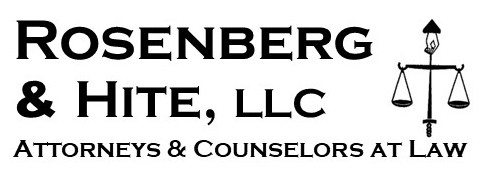No one plans for injuries like we do
If you have been injured in a motor vehicle, motorcycle, trucking, or train-related accident, or due to a slip and fall, you may be eligible to file a claim and/or a lawsuit to recover damages. A personal injury refers to any harm, whether it be physical or psychological, caused by negligence, intentional harm, or the recklessness of another person or entity.
We offer free consultations to anyone injured in an accident or a slip and fall. You and your loved ones can benefit from the dedication and commitment of our firm’s legal team.
Our firm has advocated for numerous settlements and judgments for our clients, including several six figure awards. We have nationally ranked attorneys who have won awards with the American Institute of Personal Injury Attorneys as well as the National Academy of Personal Injury Attorneys.
We carefully prepare our cases to achieve results for each client we represent. Nothing matters more after an accident than making sure you know your rights as to compensation and getting the treatment you deserve.
Types of personal injuries
Personal injuries can occur as a result of many different types of incidents. Examples of what constitutes a personal injury include:
- car accidents
- construction accidents
- alcohol-related accidents
- motorcycle accidents
- work accidents
- trucking accidents
- train accidents
- premises liability
- slips and fails
- child abuse
- defective products
- wrongful death
- extreme emotional distress
- verbal abuse
- dog bites
- false imprisonment
- prescriptive errors

Personal injury claims
Our firm’s attorneys understand the stress and devastation caused by an accident and will work to recover financial compensation for your damages. We can help you recover compensation for losses for hospital bills, doctor bills, lost wages, loss of the ability to work, pain and suffering, mental anguish, loss of consortium, out of pocket expenses, and long term programs.
Our firm consists of aggressive personal injury attorneys who will work to ensure that all liable parties are held accountable for their actions.
Personal injury cases do not require any fees upfront. Instead, these cases are taken on a contingency fee basis. A contingency fee means that if our firm is able to secure a positive settlement or judgment, attorney’s fees are paid out of a state-regulated percentage of your award. If there is no settlement or judgment, you will not be required to pay any attorney’s fees.
It is very important that you see an attorney soon after your accident so you do not let the statute of limitations expire.
Personal Injury Frequently Asked Questions
- How much will it cost to hire a Personal Injury Attorney?
There is no fee unless we can get you money. This is called a contingency fee. The attorney fee is a percentage of the award achieved either through settlement or judgment. Typically, there will be no upfront out-of-pocket expenses for your lawsuit. All costs would be collected from the final award.
Award or Settlement : Fee
- $1-$300,000 : 33 1/3%
- $300,000-$600,000 : 25%
- $600,000-$900,000 : 20%
- $900,000-$1,200,000 : 15%
- $1,200,000 and up : 10%
- What do I do at the scene of an accident?
- Before moving, check yourself for injuries.
- Take photographs of your vehicle, the other vehicles involved, the scene and any obstructions from multiple angles.
- Make sure you speak with the police regarding what occurred.
- Exchange insurance information.
- Comply with the directions of the police officers.
- Get seen by the paramedics.
- And call your lawyer.
- What do I do after the accident?
- Get checked out at the Walk-in or the Emergency Room.
- Begin keeping a pain diary.
- Consult with an experienced Personal Injury Attorney.
- I don’t have the police report for the accident, can I still file a personal injury suite?
As long as you have the police report number, your attorney can obtain the report. If no report was made or taken, it is more challenging for an attorney to establish liability, however, you should still consult with an experienced Personal Injury Attorney.
- I was in a car accident, but I wasn’t driving, do I have a personal injury claim?
Yes. You absolutely have a case. It may be against both your driver and the other driver as well.
- Do I need to pay the doctors’ bills if the accident wasn’t my fault?
Doctor bills become part of the damages package that your attorney will show opposing counsel in helping to illustrate the monetary value of your claim. Some doctors will accept a Letter of Protection, which defers payment until a matter is resolved. Advise your Personal Injury Attorney about any doctors you are seeing for your injuries.
- \How do I get a rental car after my accident?
Your insurance may cover a car rental, consult with your insurance agent and policy documents. Some attorneys’ offices assist their clients in obtaining a rental car.
- What will my insurance pay for?
Your insurance will pay for property damage, rental car, etc. It truly depends on a number of other elements and circumstances including who the insurance is and what the circumstances are.
- Do I use my health insurance or car insurance for medical visits?
You may be asked for both in case one is not available.
- The person who hit me doesn’t have insurance; do I still have a claim?
You may still have a claim if you have uninsured/ under-insured motorist coverage (UM Coverage) in your own policy. We highly recommend you obtain this insurance if you do not already have it.
- What if the person who hit me policy doesn't cover all my bills?
This is where Under-Insured (UM) Coverage becomes important. Without UM you may have no other recourse. Check your insurance coverage and speak with an insurance agent to add Under-Insured coverage to your policy.
- Who pays my medical bills?
Your medical bills usually get paid out of your settlement. If your insurance has a MedPay policy, your insurance may cover bills up to the policy amount. Your attorney makes sure any reported bills are paid out of the settlement.
- How long will my case take?
There is no way to know how long a case will take. Keep your attorney informed about your treatment status, especially when seeing new doctors and when you have completed treatment. Patience is important.
You and your personal injury attorney should strive for your maximum full recovery rather than a quick settlement.
- I was on my way to work, is this a Personal Injury or Works Compensation?
It depends on more details and circumstances. Call a Personal Injury and Workers Compensation Attorney to discuss your circumstances. In some cases, you may have a right to both claims. It is important to hire an attorney who has experience in both types of law to best handle these claims.
- I was injured while at work, what do I do?
You likely have a Workers Compensation Case which has very different timetables and statutes of limitations than a personal injury. You should immediately contact an experienced Workers Comp attorney for assistance.
- I slipped on ice do I have a claim?
Possibly. It depends on where you were, what you were doing, who maintained the area where you slipped, and several other factors. Consult an experienced personal injury attorney to discuss your situation.
- I fell at a friend’s house and was injured, what do I do?
Speak to a Personal Injury Attorney. You may be able to bring a claim against the homeowner’s insurance company.
- I was hit by a car while walking down the street, what do I do?
Speak to an experienced personal injury attorney to bring a claim against the driver.
- I was in an accident while in a Uber/Lyft ride, what do I do?
Speak to an experienced Personal Injury Attorney. You may have a claim against the driver and the company.
- What do I do if the Insurance Adjuster calls me?
Do not speak with the Adjuster before consulting an experienced personal injury attorney. Refer the Adjuster to your attorney.
- Can I make up lost wages in my Personal Injury Case?
Yes. But you must substantiate your claim with evidence.
- What happens if the accident was my fault?
Alert your insurance company immediately and allow them to defend you. If you do not have insurance, you must contact a private attorney to obtain a defense.
Terms used in Personal injury
- Adjuster: Insurance company employee that investigates a claim and determines liability and value.
- Affidavit: A sworn written statement made under oath. Affidavits must be signed and acknowledged in front of a notary.
- Arbitration: A meeting of all parties in front of a neutral third party to discuss settlement of a claim. Arbitration can be binding or non-binding.
- Contingency Fee: A method of payment of the attorney in a personal injury claim where no payment is made upfront. The attorney will be paid by a percentage of the gross award to the client.
- Date of Injury/Date of Accident (DOI/DOA): The date that the accident or injury occurred.
- Defendant: Person or business being sued in a lawsuit.
- Deposition: A formal meeting of the parties with their attorneys in front of a court reporter for the purpose of asking questions on the record to obtain facts in the case. This is done during the discovery phase of a lawsuit.
- Discovery: A process of a lawsuit that allows both sides to gather relevant facts from each other.
- Evidence: Tangible facts that can be used during a lawsuit. Examples include photos of injury and damage, medical bills, insurance forms, incident reports.
- Expert Witness: These are people with professional expertise in a specific area that relate to the lawsuit. Witnesses can provide reports and/or written and oral statements to support or discount facts in evidence.
- Interrogatory: Written questions asked by either side of a lawsuit, and must be answered by the opposing side.
- Letter of Protection (LOP): A promise to ensure the bill is paid from proceeds of a case supplied to a doctor’s office where an injured party is treating.
- Liability Insurance: Insurance that covers a claim of personal injury or bodily harm.
- Mediation: A process where all parties in a dispute meet with a trained neutral party, or mediator, in an effort to resolve an issue by mutual agreement.
- MedPay: An insurance policy rider that covers medical expenses if you are in an accident. Check with your insurance company about adding MedPay to your policy.
- Motion: A court filing that brings a question before the court and asks the judge to answer.
- Plaintiff: Person or business initiating a lawsuit.
- Settlement: An agreed-upon amount of money to finalize a claim without waiting for a court order or judgment.
- Statute of Limitations: A time limit to when a case can be brought in court. In CT, a claim must be filed within two (2) years of the date of injury is first sustained or discovered.
- Tort: A legal term for a personal injury.
